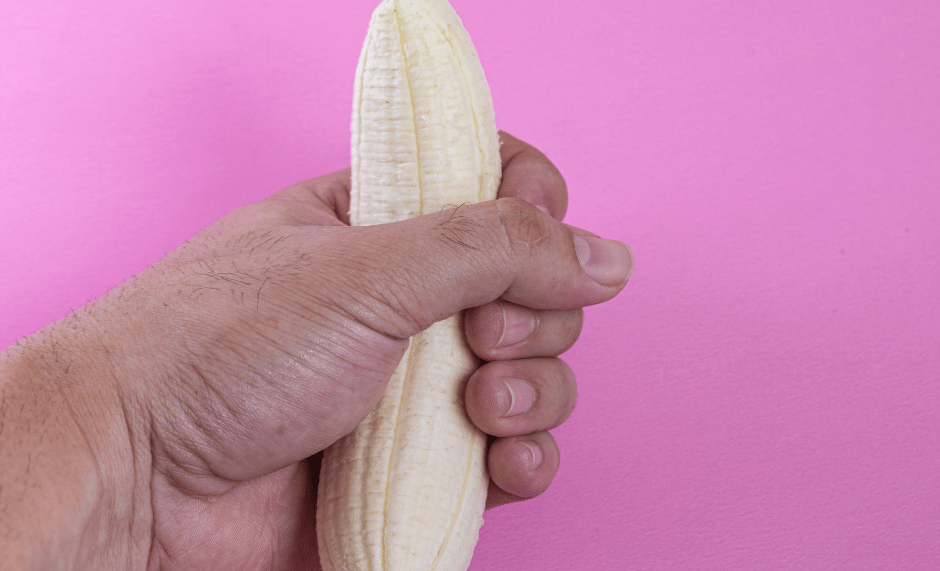Understanding Masturbation Addiction and Seeking Help
Learn about the causes and consequences of masturbation addiction, and find resources and support for seeking help in overcoming this issue.


Understanding Masturbation Addiction
Masturbation is a natural and normal part of human sexuality. It is a healthy way to explore one's own body and experience sexual pleasure. However, when masturbation becomes compulsive and starts interfering with daily life activities, it may be a sign of addiction.
Masturbation addiction, also known as compulsive masturbation or hypersexuality, is a condition where an individual feels an uncontrollable urge to engage in masturbation. This addiction can have negative consequences on physical, mental, and emotional well-being.
Signs and Symptoms of Masturbation Addiction
It is important to note that everyone's sexual desires and behaviors are unique, and what may be considered excessive for one person may be normal for another. However, if you are concerned about your masturbation habits, here are some signs that may indicate an addiction:
- Feeling a lack of control over the urge to masturbate
- Engaging in excessive masturbation, often for long periods of time
- Feeling distressed or guilty after masturbating
- Difficulty in fulfilling daily responsibilities due to excessive masturbation
- Using masturbation as a coping mechanism for stress or emotional issues
- Experiencing relationship problems due to excessive masturbation
- Feeling the need to masturbate in inappropriate or public settings
Causes of Masturbation Addiction
There is no single cause for masturbation addiction, as it can be influenced by a combination of factors. Some common causes include:
- Stress or anxiety: Masturbation can provide temporary relief from stress or anxiety, leading to a cycle of addiction.
- Sexual trauma or abuse: Individuals who have experienced sexual trauma or abuse may turn to masturbation as a way to cope with their emotions.
- Underlying mental health conditions: Masturbation addiction can be linked to conditions such as depression, bipolar disorder, or obsessive-compulsive disorder (OCD).
- Unhealthy coping mechanisms: Using masturbation as a way to escape or avoid dealing with emotional issues can lead to addiction.
- Social or cultural factors: Societal or cultural beliefs about sex and masturbation can influence an individual's relationship with masturbation.
Seeking Help for Masturbation Addiction
If you believe you may be struggling with masturbation addiction, it is important to seek help and support. Here are some steps you can take:
1. Self-reflection and acceptance
Take the time to reflect on your masturbation habits and acknowledge if they are causing distress or interfering with your daily life. Acceptance is the first step towards seeking help.
2. Educate yourself
Learn more about masturbation addiction and its potential consequences. Understanding the problem can help you make informed decisions and seek appropriate support.
3. Reach out for professional help
Consider seeking guidance from a therapist or counselor who specializes in sexual addiction. They can provide a safe and non-judgmental space for you to explore your feelings and develop healthier coping mechanisms.
4. Build a support network
Connect with others who may be experiencing similar challenges. Joining support groups or online forums can provide a sense of community and understanding.
5. Develop healthy coping mechanisms
Explore alternative ways to cope with stress, anxiety, or other emotional issues. This could include engaging in physical exercise, practicing mindfulness or meditation, or pursuing hobbies and interests that bring you joy.
6. Set boundaries
Establish boundaries around your masturbation habits. This could involve setting limits on frequency, duration, or the use of pornography. Creating a structure can help regain control over your behavior.
7. Practice self-care
Take care of your overall well-being by prioritizing self-care. This may include getting enough sleep, eating a balanced diet, and engaging in activities that promote relaxation and stress reduction.
8. Involve your partner
If you are in a committed relationship, consider discussing your concerns with your partner. Open and honest communication can help strengthen your bond and provide additional support.
Conclusion
Masturbation addiction is a complex issue that can have a significant impact on an individual's life. Recognizing the signs and seeking help is an important step towards recovery. Remember, there is no shame in seeking support, and with the right guidance, it is possible to develop healthier habits and regain control over your sexual behaviors.


